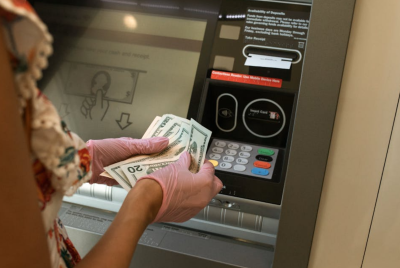Ben & Jerry's Co-Founder Ben Cohen Defies Unilever With Pro-Palestine Watermelon Sorbet
With Unilever muting the brand's mission, this sorbet emerges as a sweet rebellion

In a bold act of defiance against corporate censorship, Ben & Jerry's co-founder Ben Cohen launched a Palestine-themed watermelon sorbet under his independent brand, Ben's Best, after Unilever blocked the flavour from being released under Ben & Jerry's. Announced on 29 October 2025, the sorbet draws on the watermelon's symbolic association with Palestinian identity and resistance, calling for permanent peace and repair in Gaza.
As the #FreeBenAndJerrys movement surges, Cohen's initiative challenges big business to honour social missions, inviting global participation in naming and designing the flavour, a fusion of taste and justice.
The Unilever Block and Cohen's Defiant Response
On 28 October 2025, Cohen revealed Unilever, which acquired Ben & Jerry's in 2000, had blocked a watermelon flavour intended to show solidarity with Palestine. 'A while back, Ben & Jerry's tried to make a flavour to call for peace in Palestine... but they weren't allowed to,' Cohen stated, accusing the company of silencing political expression.
This follows co-founder Jerry Greenfield's exit on 17 September 2025, when he left citing Unilever's suppression of social activism, stating he could no longer work for a 'silenced' brand. In response, Cohen announced his plan to independently create the watermelon sorbet, stating, 'I'm doing what they couldn't, I'm making a watermelon-flavoured ice cream that calls for permanent peace in Palestine and for repairing the damage that was done there.'
"I'm doing what they couldn't, I'm making a watermelon-flavoured ice cream that calls for permanent peace in Palestine and calls for repairing the damage that was done there," Cohen said.
— BFM News (@NewsBFM) October 29, 2025
The dessert series will be developed under Ben's Best, his activist ice cream brand.
🧵2
The dessert series will be developed under Ben's Best, his activist ice cream brand. This revives the brand's activist roots, defying parent company constraints on pro-Palestine efforts.
Crowdsourcing Creativity for Solidarity Sorbet
To amplify the cause, Cohen issued a public challenge on X: 'This is a challenge for everyone who believes individuals and companies should not be silenced in talking about Palestine. Name my watermelon flavor, suggest ingredients, and help design the packaging Let's show @MagnumGlobal what creativity and solidarity can do. #JusticeforPalestine #FreeBenandJerrys'
This is a challenge for everyone who believes individuals and companies should not be silenced in talking about Palestine.
— Ben Cohen (@YoBenCohen) October 29, 2025
🍉Name my watermelon flavor, suggest ingredients, and help design the packaging 🍉
Let’s show @MagnumGlobal what creativity and solidarity can do.… pic.twitter.com/idnQEkeSba
Suggestions poured in, including 'Seeds of Solidarity' with watermelon base, mint swirl, dark chocolate seeds, and rosewater hint. Other ideas featured 'Freedom Fruit' with lemon syrup and mint, or 'Sumud Scoop' blending watermelon, mint, chocolate, and pistachio. Packaging designs incorporated Palestinian flag colours—red, green, black, white—in the sorbet's palette, intentionally echoing national symbols.
Cohen's post drew over 38,000 likes and 9,000 reposts, fuelling a community-driven revival of Ben & Jerry's activist spirit. The effort turns defiance into collaboration, crafting a Gaza peace flavor that honours resilience and heritage through every scoop.
Implications for Corporate Activism and Public Reaction
The saga underscores long-standing tensions in Ben & Jerry's-Unilever relations, including prior blocks on ceasefire calls, student protests, and sales in occupied territories. Critics like Combat Antisemitism have labelled the sorbet 'Resistance ice cream', while supporters hail it as a vital stand for Gaza peace.
Public reaction remains divided: pro-Palestine voices celebrate Cohen's initiative as moral leadership, while some sceptics like journalist David Collier warn of potential backlash and mock the campaign's tone. Yet, Cohen's initiative may inspire broader accountability, proving that even ice cream can inspire social change.
With Unilever muting Ben &Jerry's mission, this sorbet emerges as a sweet rebellion, potentially reshaping how global brands engage with political conflicts and humanitarian advocacy.
© Copyright IBTimes 2025. All rights reserved.





















